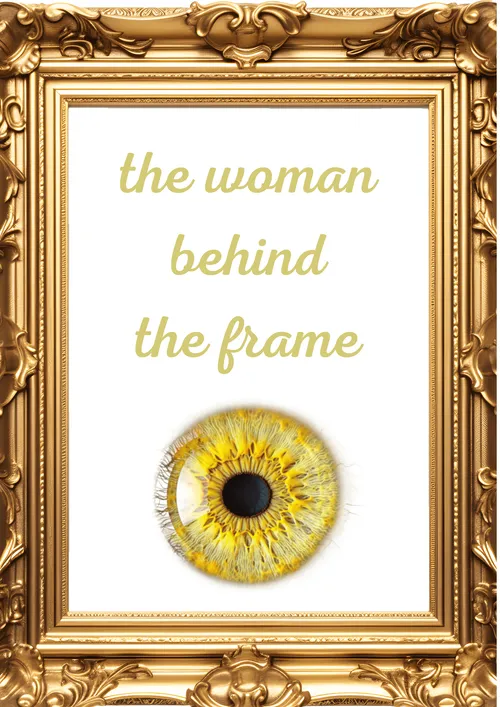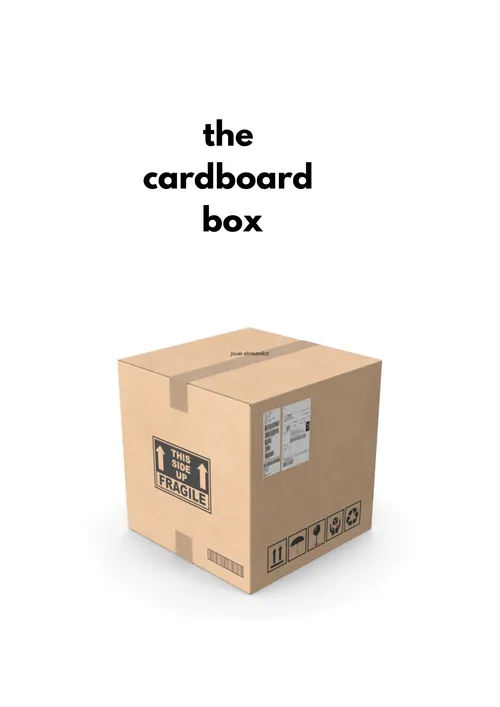The girl in the photo on his wall blinked.
Lucas turned his head to look for a second time. Nothing.
He shuffled toward the front door. If he left now, he’d still make the football game. “Help!” A child’s voice echoed in the room.
Immediately he glanced at the girl in the picture and he was certain: her eyes were now wide open. Usually they would be closed, now those eyes, yellow like a jasmine stared right back at him. Time stalled as he hesitated. His gaze darted between the photo and the door. His cold feet clung to the wooden floor.
“Hello?” he whispered, barely audible. His heart was racing.
“Help!” “Help!” “Help!”
The girl shrieked again and again. Then, he tiptoed to the picture and touched her eyes. His hands froze from the cold, the eyes of the girl turned sky-blue.
“Who are you?” he whimpered.
Silence.
“That’s quite a loaded question,” she said. Her voice carried no humor despite the joke.
He was breathing like he had run a marathon yet, he stood still and unmoving.
A light tap on his shoulder made him spin around—no one was there. When he turned back to the wall, the girl on the photo had vanished. Only the frame remained.
“I am you,” said the girl - now standing right in front of him.
“I… I don’t understand,” he said, his eyes pleading, full of sorrow.
“Wait,” she said. “I’m you. From another lifetime. You are me, but from this century.”
Lucas nodded in incomprehension.
“You don’t get it,” she laughed, more with urgency than mirth. “Do you?” Her eyes had returned to their previous yellow.
No words came. He stared, tongue-tied, at this small girl.
“I’m dead,” she continued. “But we share the same soul. I need your help. I’m trapped.”
The words poured from her like bile and Lucas couldn’t form a sentence, he felt they had nothing in common. His breath became more focused as he forced himself to remain calm. In. Out.
Once steady again, he asked apprehensively, “What do you want me to do?”
“Sing,” she said, without hesitation. “Sing with me. That’s how I’ll be freed.” Her determination made those eyes appear a bit darker, her excitement made her flush.
She handed him a piece of brittle, yellowed paper. Lyrics were scribbled on it. It wasn’t written in English. The only word he did understand meant “evolve” in Latin, of which he was certain. This wasn’t right. His gut twisted.
“I don’t want to do this,” he muttered. “I don’t know the risks.”
The paper slipped from his hands. The moment it hit the ground, it shattered like glass.
“How dare you!” the girl bawled. She sobbed, then froze—rigid, like a statue. The “you” echoed through the air till she was rock solid.
“I’m sorry,” Lucas said, crouching to her eye level.
Her eyes were black. Too black. Like the void behind a terrible memory.
No, he thought. She was already dead. That wasn’t me. I have not killed her.
He clutched his hands tight around his head to stop his mind from overflowing. He strode around his room like he could out-run this thing.
I should go,’ he reasoned with himself.
But still he couldn’t leave. Would she still be here when he returned?
This girl was his worst fear but yet so intriguing: like a friend who knows you better then you know yourself. A mirror.
“I can’t. I can’t. I can’t.”
His cheeks were soaked. His legs burned. He grabbed his phone and called his therapist. It rang only once. His therapist knew all his troubles or doubts. She had helped him when he felt lost after the funeral of his mother.
“Come over. I got time,” soothed Linda. Linda, his therapist, never panicked. She had many other clients but somehow she always had time. A wave of relief washed over his grief.
Lucas cried. He told her about the girl, how he couldn’t leave her.
“Why?” she asked.
He shrugged in response and told her that he didn’t know. The conversation dragged like eternity—then ended with a soft click.
Linda had hung up.
He stared at the phone. Then hurled it at the statue. If he could destroy her, maybe he could destroy the part of him she reflected.
But the phone missed, even though he had good coordination. He hadn’t aimed it at the girl. It smashed the window instead.
He slumped carefully onto the floor. He didn’t want any glass in his butt-cheeks.
“Let this be over,” he growled. But the statue didn’t stop smiling as those frozen lips mocked him. You never got over it.
He stood. Next to the girl's frame hung a photo of his mother. He never knew her, but sometimes—just sometimes—he saw a resemblance. They had the same porcelain skin and red hair. The same red cheeks when they smiled.
“You know what I’m gonna do?” he said, teeth clenched.
“You better watch out.” He tried to overpower the girl albeit she could not even reach his shoulders. This was a start to be different.
He yanked the frame from the wall. It was heavier than he expected. His arms shook as he lifted it, his biceps were aching. He could not hold it any longer.
Three seconds to make a bad decision.
He slammed the picture of his mom down on the statue’s head. Once. Twice. Again. Until the girl smelled like dust and broken glass. He picked up a warm shard of the statue and dropped it in the bin. Then another.
Until nothing remained of her and what she resembled.
He dropped to his knees. Cried. Shivered.
And finally—he felt the heat of the sun burning his cheeks through the broken window. His body became more lose and the chill of her eyes lost grip on him.
His mother’ picture gazed at him as he inspected the room over. For the first time, her eyes filled with pride instead of pity.
The corners of his lips reached his eyes, he wondered why he didn’t smile more often.
He didn’t have to be the “men” society expected, his mother would have been proud of him all along.






This story has not been rated yet. Login to review this story.